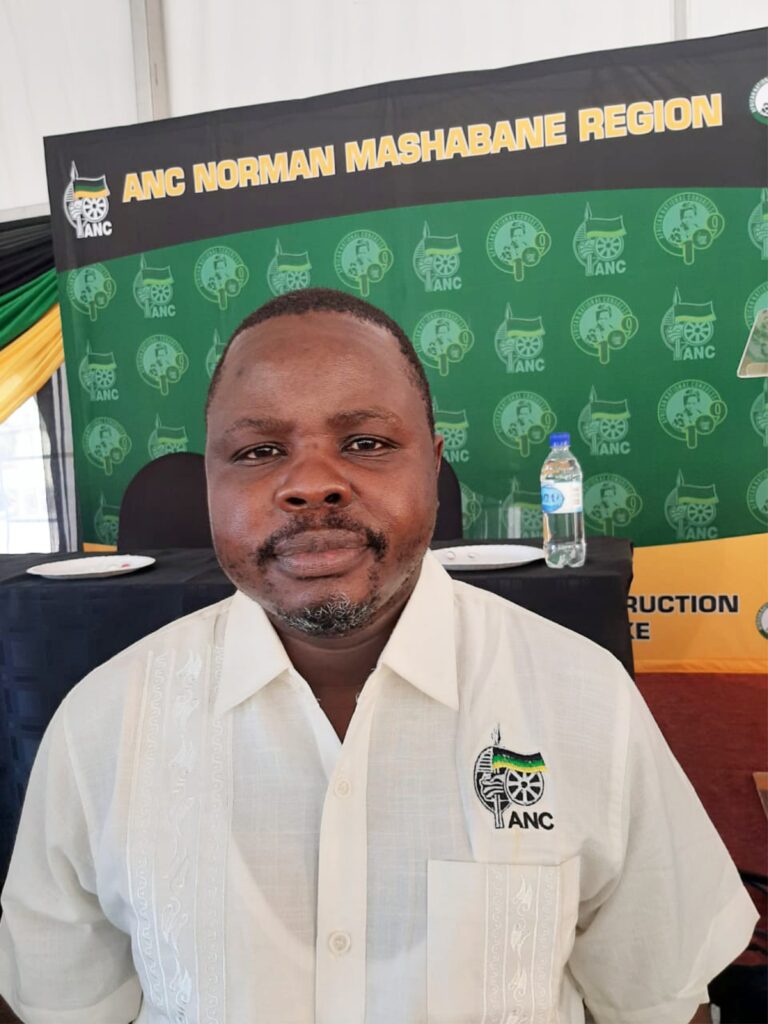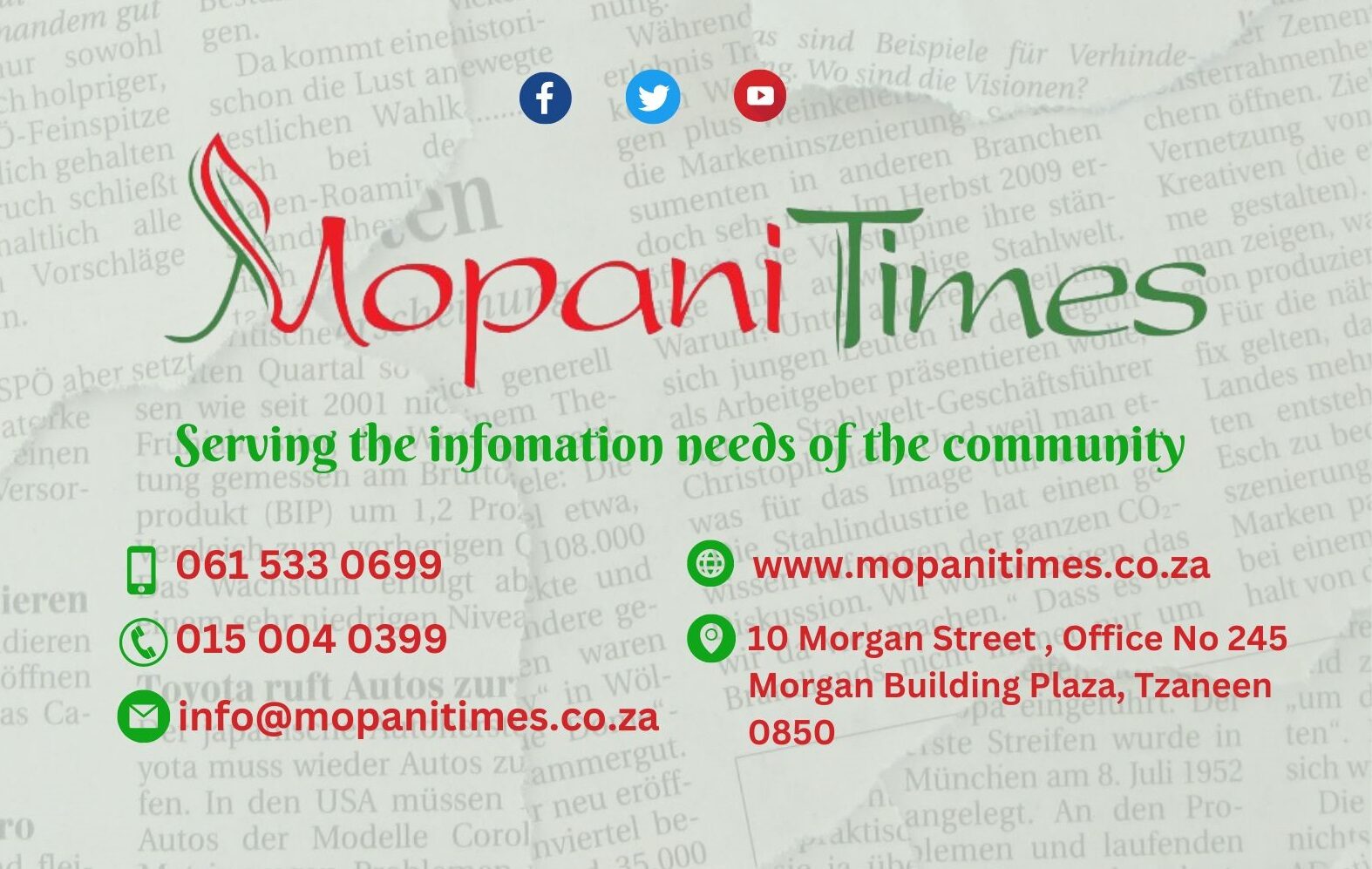
The incumbent ANC Norman Mashabane Regional Chairperson, Pule Shayi.
The upcoming ANC Norman Mashabane Regional Conference is shaping up to be a pivotal moment for the African National Congress in the Norman Mashabane region, with significant implications for the region’s political landscape.
This high-stakes event, set to take place in the last quarter of the year, will not only determine the leadership for the next three years but also set the tone for the future direction of the party in the region.
At the heart of this intense contest are two main leadership slates: one led by the incumbent chairperson, Pule Shayi, and the other by the incumbent regional secretary, Goodman Mtileni.
The campaigning has reached a fever pitch as both slates deploy a variety of strategies to garner support. Whether it’s through mass rallies, church meetings, sports events, or innovative new media campaigns, each side is vying to secure a majority. Amidst all this, both camps are claiming early victories, creating an air of unpredictability surrounding the outcome.
A notable observation from a political pundit hints at the dynamics at play: “One slate has numbers, and the other has branches, and the branches win the conference.” This assertion gives Pule Shayi an apparent edge, as his support base is said to include the majority of the branches.
In ANC’s internal politics, having branch support often translates to a strong influence at conferences, potentially positioning Shayi not just for re-election but as a key player in the provincial executive committee and government.
A significant factor bolstering Pule Shayi’s campaign is his alliances with several local mayors. Apart from the mayor of Tzaneen, all other local mayors, including those of Letaba, Giyani, and Maruleng, are aligned with Shayi. This almost unanimous support from the mayors signifies robust political capital and could be instrumental in swaying undecided delegates.
In contrast, Goodman Mtileni’s coalition holds sway mainly in the Tzaneen municipality, backed by the incumbent deputy chairperson, Gerson Molapisane.
Despite the narrative that the conference is already leaning decisively toward Shayi, it’s important to remember that nothing is certain until the conference concludes and all votes are counted.
Political conferences, much like elections, can be unpredictable, with dynamics shifting rapidly based on speeches, last-minute negotiations, and other unforeseen factors.
The anticipation that Shayi might deliver the closing speech and seal his leadership position doesn’t diminish the critical role this conference plays in shaping the party’s direction. If Shayi’s slate does prevail, it could signify continuity, potentially reinforcing the current policies and projects initiated under his leadership.
Conversely, a surprise win for Mtileni could indicate a shift towards new strategies and priorities, injecting fresh perspectives into the region’s governance.
Moreover, the outcome carries broader implications beyond immediate leadership concerns. The balance of power within the Mopani region could influence ANC’s strategies in upcoming national and provincial elections.
A strong, unified regional leadership could prove advantageous as the party seeks to maintain its prominence and address internal challenges.
Whatever the outcome, the conference represents more than just a leadership contest. It is a testament to the vibrancy and complexities of internal democracy within the ANC. It underscores the critical importance of grassroots engagement, coalition-building, and the ever-present interplay of local and regional interests within political structures.
As the conference date approaches, all eyes will be on the ANC Mopani region to see how the developments unfold. The winning slate will have the formidable task of not only uniting the party and its supporters post-conference but also addressing the pressing challenges facing the district. These include service delivery, economic development, and enhancing the quality of governance to meet the aspirations of the people of Mopani.
In conclusion, while current indicators suggest a favourable outcome for Pule Shayi, it’s the dynamic nature of political contests that keeps such events intensely watched and closely analysed. The ANC Mopani Regional Conference is poised to be a significant event in shaping the political trajectory not just for the region, but potentially influencing wider political strategies and alignments.

The incumbent ANC Norman Mashabane Regional Secretary, Goodman Mtileni.
